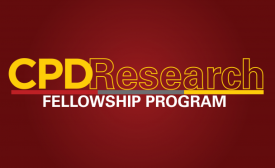city diplomacy

CPD is proud to announce the 2011-2013 CPD Research Fellows: Michele Acuto, Sarah Graham, and R.S. Zaharna.
The exhibition "Post-Oil City: The History of the City's Future" presents a host of innovative city planning projects in Asia, Africa, and the Americas. Looking both to the past and to the future, the exhibition assembles eleven contemporary projects...
The Space Needle turns 50 next year and is hoping to capitalize on, if not refurbish, its image as a symbol of the future. The tower was built for the 1962 World’s Fair, at the dawn of the space age. The “Space Race” sweepstakes, coming just as NASA’s space shuttle program has ended, hopes to highlight the work of private companies that are picking up where NASA left off.
Popular Japanese culture has often baffled the western world. But now local authorities are taking lessons from Japan on how to use popular culture, regional history and local produce to promote regions across the country. The Japan Local Government Centre, which boasts an office in central London, is working to share the lessons of Japanese local authority projects with their counterparts in the UK.
Tightened budgets in recent years all but pushed these sister-city efforts into obscurity, but thanks to persistence and local fundraising, the cross-cultural and cross-global friendships are enjoying something of a revival.
Recent months have seen an avalanche of new lesbian, gay, bisexual and transgender (LGBT)-friendly initiatives in Rio: vocational training courses for transvestites, anti-bullying projects aimed at gay and lesbian students and new legislation outlawing discrimination in the city's nightclubs.
Manchester is the city that tried to turn itself around by turning itself into a brand. The result has been an undeniable improvement. Here is the most astonishing fact about Manchester's regeneration: where residents were once desperate to leave the city, now, for the first time in 50 years, people are flocking back.
Jackson Mayor Harvey Johnson Jr. left the country Monday night, bound for Turkey on a weeklong trip seeking a "sister city" relationship with the municipality of Kahramanmaras....The cultural exchange trip is sponsored and paid for by the Turquoise Council of Americans and Eurasians, city spokesman Chris Mims said.







